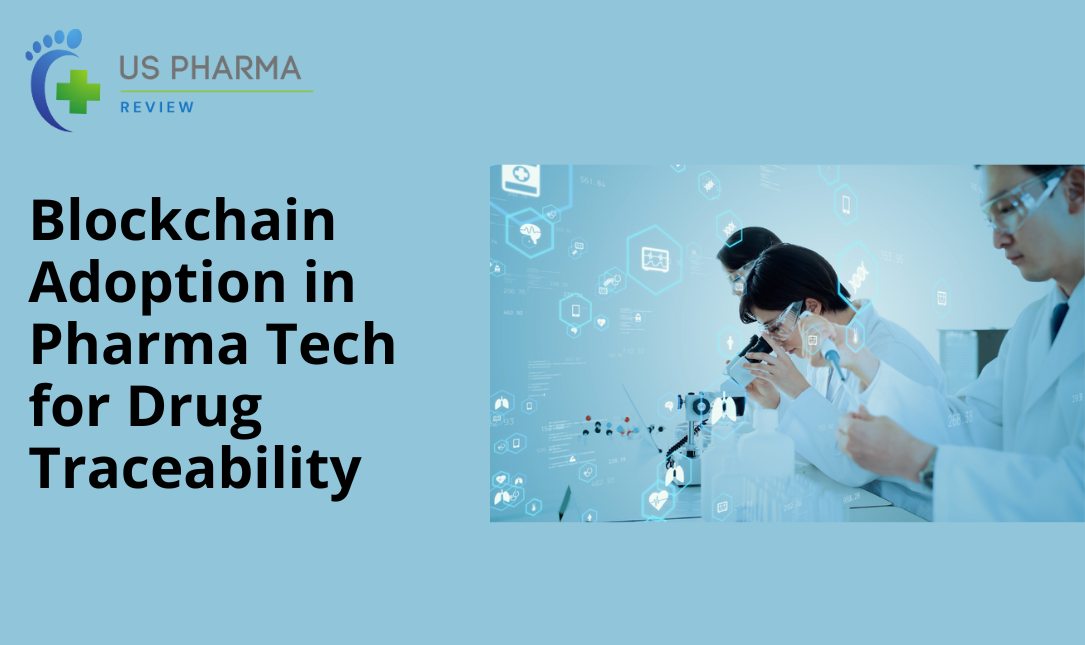Travel Tips
Lorem ipsum dolor sit amet, consectetur adipiscing elit.

The pharmaceutical industry is witnessing a major transformation with the integration of advanced pharma tech solutions. Among the most impactful innovations, blockchain technology stands out for its potential to revolutionize drug traceability, supply-chain transparency, and regulatory compliance. The global need for authentic medicines, coupled with the rising threat of counterfeit drugs, has pushed companies to explore blockchain in pharma as a cornerstone of digital transformation.
As healthcare ecosystems become more complex, blockchain offers a tamper-proof and decentralized framework that strengthens data integrity and trust across every phase of the drug lifecycle—from manufacturing to dispensing.
In the context of pharma tech, blockchain’s immutable ledger system ensures that every transaction, movement, or alteration in drug information is recorded permanently. This ability to create an unchangeable record fosters unprecedented levels of transparency and accountability.
Traditional systems often rely on centralized databases, which can be vulnerable to cyberattacks, data errors, and manipulation. In contrast, blockchain distributes data across multiple nodes, ensuring security and traceability. This is especially critical for drug traceability solutions, where the origin, authenticity, and movement of each pharmaceutical product must be verifiable in real time.
Moreover, blockchain integrates seamlessly with other pharma tech advancements such as IoT, AI, and smart packaging technologies, amplifying its impact on supply-chain efficiency.
The core challenge in pharmaceutical logistics has always been ensuring that every product reaching the end-user is authentic and safe. Blockchain addresses this challenge head-on by creating a transparent, end-to-end record of every transaction in the supply chain.
By leveraging blockchain-based drug traceability solutions, companies can:
Verify the authenticity of raw materials and finished drugs.
Monitor environmental conditions during transportation.
Track every handoff between manufacturers, distributors, and retailers.
Instantly recall compromised batches.
When integrated with pharma tech platforms, blockchain enables real-time visibility for regulators, manufacturers, and consumers alike. This drastically reduces the risk of counterfeit drugs infiltrating the market—a problem that costs the global pharmaceutical industry billions annually.
A secure supply chain is vital for public health and corporate integrity. Blockchain plays a crucial role in enhancing pharma supply-chain security by ensuring that data integrity is never compromised. Each transaction or movement is recorded with a unique digital signature, which cannot be altered retroactively.
This immutable audit trail is invaluable for preventing tampering, theft, and counterfeit distribution. For example, when blockchain is applied to pharma tech logistics, every stakeholder can instantly verify the product’s origin, manufacturing date, and compliance status through a shared ledger.
Beyond traceability, blockchain also optimizes inventory management and minimizes losses from overproduction or expired stock. The combination of blockchain in pharma with AI-driven analytics enables predictive monitoring of supply and demand patterns, ultimately enhancing operational efficiency and trust.
One of the most complex aspects of pharmaceutical operations is maintaining compliance with regional and international regulations. Blockchain provides an auditable, transparent, and secure platform for regulatory compliance technology.
Authorities such as the U.S. Food and Drug Administration (FDA) and the European Medicines Agency (EMA) are increasingly advocating digital systems that ensure better visibility across the drug supply chain. Blockchain perfectly aligns with these goals by automating compliance processes, reducing paperwork, and providing instant access to verified data during inspections.
For example, blockchain records can automatically verify whether a shipment adheres to Good Manufacturing Practices (GMP) and serialization mandates. This drastically reduces manual errors and speeds up approval processes—saving both time and resources for pharma tech companies.
Global pharmaceutical leaders have begun implementing blockchain-based solutions to address real-world challenges:
Pfizer and IBM collaborated on a blockchain pilot under the FDA’s Drug Supply Chain Security Act (DSCSA). The results demonstrated that blockchain could significantly enhance drug traceability solutions by creating a transparent ecosystem for all stakeholders.
Novartis has explored blockchain integration to track temperature-sensitive vaccines, ensuring that cold-chain integrity remains intact during transportation.
MediLedger Project, an industry consortium, continues to pioneer blockchain-based platforms for pharmaceutical verification, compliance, and pharma supply-chain security.
These initiatives prove that blockchain is not merely a theoretical innovation—it’s a practical, scalable tool reshaping the landscape of pharma tech.
Despite its promise, the widespread adoption of blockchain in pharma tech faces several challenges. Integration with existing legacy systems, high implementation costs, and a lack of standardized regulations remain key barriers.
However, the industry is gradually addressing these concerns through collaborative frameworks and pilot programs. Emerging regulatory compliance technology solutions are simplifying integration processes and ensuring interoperability across different systems.
As more governments and regulatory bodies recognize the value of blockchain in ensuring pharma supply-chain security, we can expect standardized global adoption to accelerate.
The future of pharma tech lies in interconnected ecosystems where data flows seamlessly between manufacturers, regulators, healthcare providers, and patients. Blockchain will serve as the digital backbone for this transformation, ensuring that every interaction within the supply chain is transparent, traceable, and trustworthy.
Furthermore, blockchain’s integration with artificial intelligence (AI), the Internet of Things (IoT), and 5G technology will unlock new opportunities for drug traceability solutions and predictive analytics. From automated compliance audits to personalized medicine authentication, blockchain’s potential in pharma tech continues to expand.
For a deeper understanding of how technology is optimizing pharmaceutical logistics, read our related article: Smart Manufacturing in Pharma Tech: Optimising Supply Chains.
Blockchain represents a paradigm shift in pharma tech, addressing long-standing challenges in drug traceability, pharma supply-chain security, and regulatory compliance technology. As pharmaceutical organizations continue their digital transformation journeys, blockchain stands out as a vital enabler of transparency, trust, and innovation.
By embracing blockchain-driven drug traceability solutions, the pharma industry can ensure patient safety, prevent counterfeit drugs, and enhance global health outcomes. Ultimately, blockchain isn’t just reshaping pharma tech—it’s redefining how trust and technology coexist in the modern healthcare ecosystem.